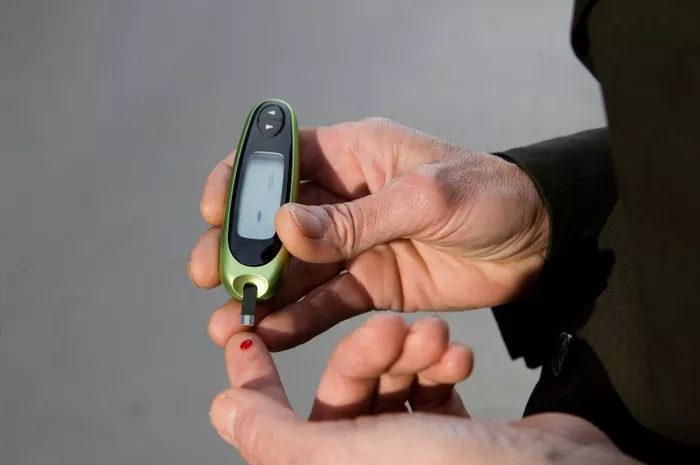Causes of Hyperglycemia
Several factors can cause hyperglycemia, including:
Diabetes Mellitus: The most common cause of chronic hyperglycemia is diabetes, which can be of two main types: Type 1 and Type 2. In Type 1 diabetes, the body’s immune system attacks and destroys insulin-producing cells in the pancreas. In Type 2 diabetes, the body becomes resistant to insulin or the pancreas fails to produce enough insulin.
Stress: Physical or emotional stress can cause temporary spikes in blood glucose levels. This is due to the release of stress hormones like cortisol and adrenaline, which can increase blood sugar levels.
Diet: Consuming foods high in carbohydrates and sugars can cause blood sugar levels to rise, especially if insulin production or utilization is impaired.
Illness or Infection: When the body is fighting an illness or infection, blood sugar levels can rise due to the stress on the body and the inflammatory response.
Medications: Certain medications, such as steroids, can cause an increase in blood sugar levels.
Lack of Physical Activity: Physical activity helps regulate blood sugar levels. A sedentary lifestyle can lead to higher blood sugar levels.
Temporary Hyperglycemia: An Overview
Temporary hyperglycemia refers to transient increases in blood sugar levels that return to normal once the underlying cause is addressed. Unlike chronic hyperglycemia, which is persistent and typically associated with diabetes, temporary hyperglycemia can occur in non-diabetic individuals under certain conditions. Understanding the scenarios in which hyperglycemia can be temporary is crucial for appropriate management and intervention.
Acute Stress and Hyperglycemia
Physical Stress
When the body is subjected to physical stress, such as surgery, trauma, or intense exercise, it releases stress hormones like cortisol and adrenaline. These hormones increase blood sugar levels to provide the body with a quick source of energy. This type of hyperglycemia is usually temporary and resolves once the stressor is removed or managed.
Emotional Stress
Emotional stress, such as anxiety, fear, or depression, can also cause temporary spikes in blood glucose levels. The body’s “fight or flight” response to stress increases glucose production and decreases insulin sensitivity. Once the emotional stress is alleviated, blood sugar levels typically return to normal.
Diet-Induced Hyperglycemia
Consuming large amounts of carbohydrates or sugary foods can lead to temporary hyperglycemia, especially in individuals with impaired insulin function. In non-diabetic individuals, the body usually compensates by increasing insulin production, and blood sugar levels normalize within a few hours. However, repeated episodes of diet-induced hyperglycemia can contribute to the development of insulin resistance and Type 2 diabetes over time.
Illness and Infection
During illness or infection, the body’s immune response can cause temporary hyperglycemia. Inflammatory cytokines and stress hormones are released, increasing glucose production and reducing insulin sensitivity. This type of hyperglycemia typically resolves once the illness or infection is treated.
Medication-Induced Hyperglycemia
Certain medications, such as corticosteroids, can cause temporary increases in blood sugar levels. Steroids, for example, can reduce the effectiveness of insulin and increase glucose production in the liver. Blood sugar levels usually return to normal after the medication is discontinued or the dosage is adjusted.
Lack of Physical Activity
A sudden decrease in physical activity can cause temporary hyperglycemia, as exercise helps muscles use glucose more effectively and increases insulin sensitivity. Resuming regular physical activity usually normalizes blood sugar levels.
Managing Temporary Hyperglycemia
Managing temporary hyperglycemia involves identifying and addressing the underlying cause. Here are some strategies:
- Stress Management: Techniques such as deep breathing, meditation, and yoga can help manage stress and prevent stress-induced hyperglycemia.
- Diet: Eating a balanced diet with controlled portions of carbohydrates can prevent diet-induced hyperglycemia. Monitoring blood sugar levels after meals can help identify foods that cause spikes in blood sugar.
- Illness Management: During illness or infection, it is important to monitor blood sugar levels closely and follow medical advice to manage the condition effectively.
- Medication Adjustment: If medications are causing hyperglycemia, consulting with a healthcare provider to adjust the dosage or switch to alternative medications can help.
- Regular Physical Activity: Engaging in regular exercise helps maintain blood sugar levels and improve insulin sensitivity.
Preventing Chronic Hyperglycemia
While temporary hyperglycemia can be managed effectively, it is important to prevent it from becoming chronic, which can lead to diabetes and other health complications. Here are some preventive measures:
- Regular Monitoring: Regular blood sugar monitoring can help detect and address temporary spikes before they become chronic.
- Healthy Lifestyle: Maintaining a healthy lifestyle with a balanced diet, regular exercise, and stress management can prevent chronic hyperglycemia.
- Early Intervention: Addressing risk factors such as obesity, hypertension, and high cholesterol early can prevent the progression to chronic hyperglycemia and diabetes.
See also: 5 Key Signs of Someone Who Has Hyperglycemia
Conclusion
Hyperglycemia can indeed be temporary, often caused by factors such as stress, diet, illness, or medications. Understanding the causes and management strategies for temporary hyperglycemia is essential for preventing it from becoming chronic. By adopting a healthy lifestyle and regularly monitoring blood sugar levels, individuals can effectively manage temporary hyperglycemia and reduce the risk of long-term health complications.
Related topics:
How Does Hyperglycemia Cause Retinopathy?

























